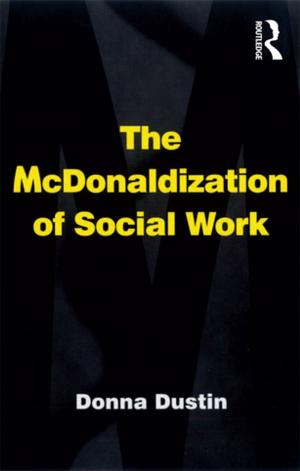Men in Families
When Do They Get involved? What Difference Does It Make?
Nonfiction, Health & Well Being, Psychology, Developmental Psychology| Author: | ISBN: | 9781135686222 | |
| Publisher: | Taylor and Francis | Publication: | January 1, 1998 |
| Imprint: | Psychology Press | Language: | English |
| Author: | |
| ISBN: | 9781135686222 |
| Publisher: | Taylor and Francis |
| Publication: | January 1, 1998 |
| Imprint: | Psychology Press |
| Language: | English |
Recently, the roles of fathers and husbands in families have been recognized as important issues. They appear in legislation aimed at deadbeat dads, social movements including the Million Man March and Promise Keepers, in the development of advocacy groups, and in think tanks. Therefore, contemporary research on men in family relationships has very mixed results. Some studies show that fathers have small effects on child development and in preventing antisocial behavior, whereas others suggest no effects. Other research claims that the primary importance of men in families is in their role as providers. Although some studies state that the husbands' and fathers' most vital work occurs in new families, others indicate that it is when their offspring reach adolescence. Confusing the issue even further, labor market trends predict that men's family roles may diminish. Based on the presentations and discussions from a recent national symposium on men in families held at The Pennsylvania State University, this book addresses these issues.
This is the only book that deals with men's involvement in families in a comprehensive way. Although several books focus on fathers alone or on a broader family perspective, this is the first book that deals with a variety of family roles on an interdisciplinary basis. Although most of the writers are psychologists or sociologists, there are key figures in history and anthropology who also make important contributions. As such, this volume will be useful to scholars, students, policy specialists, and family program administrators.
Recently, the roles of fathers and husbands in families have been recognized as important issues. They appear in legislation aimed at deadbeat dads, social movements including the Million Man March and Promise Keepers, in the development of advocacy groups, and in think tanks. Therefore, contemporary research on men in family relationships has very mixed results. Some studies show that fathers have small effects on child development and in preventing antisocial behavior, whereas others suggest no effects. Other research claims that the primary importance of men in families is in their role as providers. Although some studies state that the husbands' and fathers' most vital work occurs in new families, others indicate that it is when their offspring reach adolescence. Confusing the issue even further, labor market trends predict that men's family roles may diminish. Based on the presentations and discussions from a recent national symposium on men in families held at The Pennsylvania State University, this book addresses these issues.
This is the only book that deals with men's involvement in families in a comprehensive way. Although several books focus on fathers alone or on a broader family perspective, this is the first book that deals with a variety of family roles on an interdisciplinary basis. Although most of the writers are psychologists or sociologists, there are key figures in history and anthropology who also make important contributions. As such, this volume will be useful to scholars, students, policy specialists, and family program administrators.















